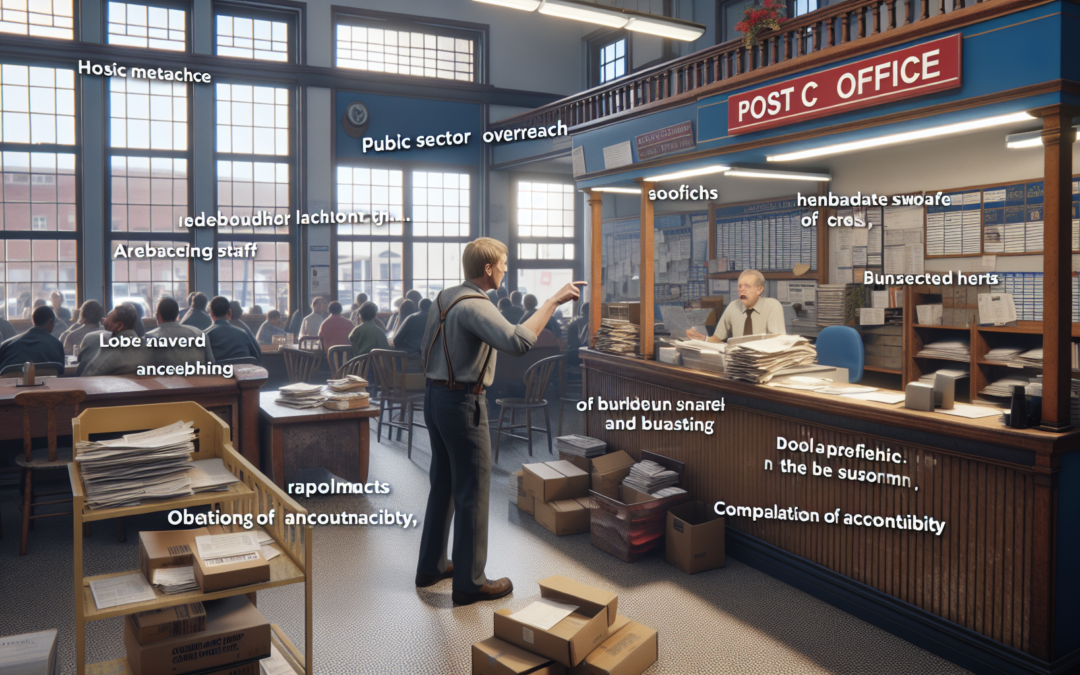Body
In the latest episode of The John Ligato Show, we delve deeper into an incident in Georgia housing a perfect storm of emotion, confrontation, and principle. This clash evokes a poignant narrative about the trials and tribulations our law enforcement officers face in this ever-divisive era.
Behind the Badge: Unseen Struggles
Every day, law enforcement officers step out into the world donning their uniforms, conscious of the weight of the badge they carry. It is not just a symbol of authority; it’s a beacon of trust, safety, and responsibility. In the face of increasing scrutiny, their existence is under continual microscope by societal watchdogs like First Amendment auditors, whose mission, while rooted in advocating transparency, often crosses paths with the harsh realities of law enforcement.
Undoubtedly, the concepts of freedom and protection ride a thin line, especially when officers are caught in situations where intentions are questioned, and actions are magnified but not always fairly. The Georgia incident, as captured vividly in the video, underscores just this tightrope.
The Conflict: Pushing Boundaries and Balance
It unfolded like a scene from a dramatic screenplay: First Amendment Auditors entered a Georgia post office, cameras equipped, with an embedded determination to test the waters of public officials’ adherence to free speech rights. Their approach, however, soon teetered from assertive to provocation. The behavior stirred a wave of tension, quickly disarming any visage of calm the officers might have had.
Being thrust into a high-pressure environment, their official commitments to law must then dance in tandem with their human instinct to react—balancing responsibility with emotional intensity. When public spaces become scenes of confrontation, the burden of serene leadership falls squarely upon these officers, who must maintain order and act as neutral arbitrators while under direct scrutiny.
Shades of Accountability
One perspective often lost in the dense fog of criticism is that of the officers’ integrity. Not only are they enforcers of regulations, but they also stand as figures accountable to their communities and the mirror of public opinion. Indeed, every step they take is a reflection on an institution intending protect and serve but always vulnerable to the same rights they work to uphold.
In the Georgia episode, the officers confronted by First Amendment auditors met the challenge with those principles in mind. Despite escalating chaos, they were bound by their oath—to protect constitutional rights yet managing chaos without infringing liberties. Communicative measures such as de-escalation techniques are crucial yet strikingly delicate in reality.
Overreach or Order?
As observers to this specific encounter might see, the fine line between overreach and maintenance of order blurs perilously. The First Amendment auditors, determined and undeterred, could be seen as defenders of freedoms. Conversely, their aims also drew into question what happens when defense turns into deliberate provocation—where standing up for rights may be construed as stepping on the protocols safeguarding public establishments’ peace.
In situations like these, “overreach” is often a relative term; officers attempting to engage respectfully yet firmly against growing disorder can find themselves labeled unjustly. For the ideal observer, this skirmish translates into a fundamental debate: At what point does assertiveness crossover into preventable conflict? When does law enforcement obligate to draw strict measures, and where should they simply mediate simmering tensions?
Emotional Resilience
From the lens of law enforcement, emotional resilience becomes pivotal—a trait not teachable by theory alone but seasoned with experiences from countless fields of unpredictable scenarios. Be it performing community outreach under tense conditions or encountering demanding Constitution audits, the personal toll grows hand-in-hand with every contentious engagement.
This episode illustrates vividly the excoriating pressure felt by officers tasked with shouldering far-reaching responsibilities beyond legal magnanimity—entailing emotional intelligence, patience, and unyielding fairness. Here, resilience isn’t mere resistance; it is adapting resolutionally to safeguard every citizen’s interest without becoming ensnared in the throes of erratic public scrutiny.
Supporting Our Officers
In truth, the events in Georgia must serve as a compelling reminder that our law enforcement officers embody more than mere gatekeepers; they symbolically reconcile the fine balance between regulated order and undiluted freedoms. Yet beyond their official garb lies the essence of human vulnerability and unwavering commitment to action.
Isn’t it high time society equally advocates for those who face daily confrontations in sustaining peace? Civil rights and enforcement aren’t mutually exclusive concepts; for every auditor exercising their freedoms, there stands an officer espousing those ideals amid layers of conflict and controversy.
Understanding this isn’t just compelling; it’s crucial for fostering a notion of cooperative accountability irrespective of situational gray areas. By extending support and cognizance toward our law officers, the essence of harmony can gradually supersede spectacle-driven provocations.
Join resilient discussions and insights into these compelling subjects by following The John Ligato Show and subscribing to their YouTube channel. Witness the episode unraveling these significant glimpses here.
In the silence that follows such episodes, let us dwell, not just on confrontation’s end but on unified respect and collective understanding of each other’s endurance and rights—bridging the spheres of security and liberty, facets that underpin the very heart of the American ethos.
Resilient commitment from law enforcement deserves not just passive observation but active reflection and unwavering support. Share, subscribe, and embolden such conversations, fostering empathy for the intricate dance between freedom and security within every community around us.

Recent Comments